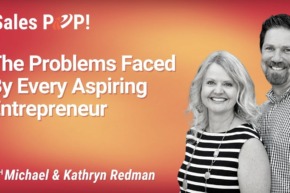The Five Principles of Intentional Growth: A Conversation with Ryan Tansom
As a podcaster, I have the privilege of engaging with some of the most brilliant minds in the business world. Recently, I had the opportunity to sit down with Ryan Tansom, an entrepreneur and founder of Arcona. Our conversation revolved around the five principles of intentional growth and the importance of having a clear vision, financial targets, exit options, growing value, and a team of advisors to achieve success in business.
The Journey of an Entrepreneur
Ryan’s journey into entrepreneurship began in the family business. His experiences there led him to develop the intentional growth framework, a concept that we delved into during our conversation. Intentional growth, as Ryan explained, is about understanding your ‘why’ and taking purposeful actions towards your goals. It’s about learning from experiences and not just going with the flow.
The Five Principles of Intentional Growth
Ryan broke down the five principles of intentional growth for us. These include:
- Having a vision for the business: Knowing where you want to go is the first step towards getting there.
- Setting financial targets: This gives you a clear idea of what you need to achieve and helps you stay on track.
- Considering exit options: It’s crucial to have a clear exit strategy, as many business owners don’t know what they want to do with their business in the long term.
- Focusing on growing value: Businesses should allocate funds to improve and appreciate their value over time.
- Having a team of advisors: Surrounding yourself with advisors who can provide valuable insights and guidance is essential.
The Importance of Cash Flow and Exit Strategy
One of the key points Ryan emphasized was the importance of looking beyond just the income statement and considering the cash flow statement. In the past, people only focused on their income statements, but now, with supply chain issues, interest rates, and labor problems, cash flow has become crucial.
Ryan also highlighted the need for a clear exit strategy. He compared this to owning a house, where people want it to appreciate in value and have options when selling it. However, many people end up investing a significant amount of money into their house, only to sell it for less than expected. The same principle applies to businesses.
Understanding Business Valuations
Understanding business valuations can be challenging, but Ryan explained that the value of a company is determined by its normalized EBITDA (cash flow) and the buyer’s perception of risk (represented by the multiple). He advises business owners to de-risk their cash flow to increase the multiple and manage their debt to enhance equity valuation.
The Role of Advisors and Coaches
We also discussed the importance of having a team of advisors and coaches to support business owners. Ryan emphasized the need for business owners to take ownership of their situation and goals and to surround themselves with advisors who can provide valuable insights and guidance.
Investing in the Right Things
As we concluded our conversation, we touched on the importance of investing in the right things for a bigger return rather than wasting money on ineffective advertising. Ryan shared that their online academy at Arcona has helped many businesses grow and succeed.
Our Host
John is the Amazon bestselling author of Winning the Battle for Sales: Lessons on Closing Every Deal from the World’s Greatest Military Victories and Social Upheaval: How to Win at Social Selling. A globally acknowledged Sales & Marketing thought leader, speaker, and strategist, he has conducted over 1500 video interviews of thought leaders for Sales POP! online sales magazine & YouTube Channel and for audio podcast channels where Sales POP! is rated in the top 2% of most popular shows out of 3,320,580 podcasts globally, ranked by Listen Score. He is CSMO at Pipeliner CRM. In his spare time, John is an avid Martial Artist.








Comments